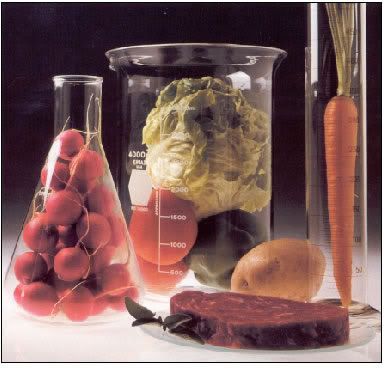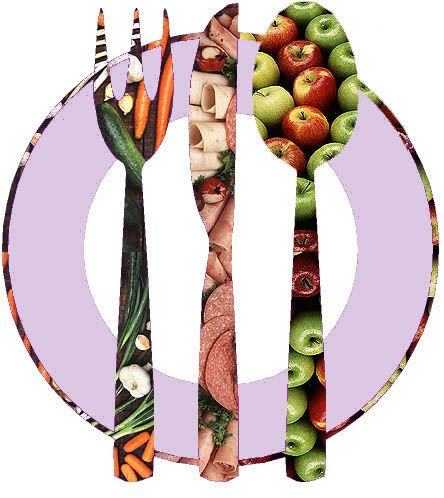Low-Fat Dietary Pattern and Risk of Colorectal Cancer.
THE WOMEN'S HEALTH INITIAtive (WHI) Dietary Modification Trial is a randomized controlled trial designed in 1991–1992 to test whether a low-fat eating pattern with increased fruits, vegetables, and grains reduces the risk of breast cancer, colorectal cancer, or, secondarily, coronary heart disease in postmenopausal women.
At that time, international comparisons suggested that countries with 50% lower fat intake than the US population had approximately one third the risk of colorectal cancer. Migration studies supported this hypothesis. Women migrating from countries with low fat consumption to countries with high fat consumption experienced the higher colorectal cancer rates of their new country. Fairly consistent evidence existed for an effect of dietary fat, vegetables and fruits, and grains on colorectal cancer risk from within-country observational studies, although the protective effect of lower fat intake was no longer clear after adjusting for energy intake. The WHI Dietary Modification Trial is the first randomized trial to directly address the health effects of a low-fat eating pattern in predominantly healthy postmenopausal women from diverse racial/ethnic, geographic, and socioeconomic backgrounds. This article reports the principal results for colorectal cancer.
COMMENT
An intervention aimed toward a low-fat eating pattern did not reduce colorectal cancer risk in postmenopausal women. Despite a significant change in fat intake and increases in vegetable, fruit, and grain consumption, the intervention hazard ratio is in the direction of an increased risk. There were no substantial differences in tumor characteristics or in rates of bowel screening between groups. Although self-reported incidence of colorectal polyps or adenomas was lower in the intervention group, no evidence of a trend toward lower colorectal cancer risk with time in the intervention group was observed over the mean 8.1-year study period.
These findings are consistent with the findings from the Polyp Prevention Trial, a secondary prevention trial of polyp recurrence, which had a similar goal for fat, fruit, and vegetable intake but also included a goal of 18 g/1000 kcal of dietary fiber. The Polyp Prevention Trial observed no effect on polyp recurrence in the 2079 participants followed up for 4 years. A small trial in Toronto, Ontario, of high fiber and low fat showed no effect on recurrence of neoplastic polyps, but, within an intensive counseling subgroup, concentrations of fecal bile acids appeared to be reduced. A small factorial trial in Australia of a low-fat intervention, [beta]-carotene supplementation, or wheat bran supplementation found no reduction in recurrence rates of adenomas but suggested that the combination of low fat and wheat bran reduced the transition from smaller to larger adenomas.
Since the WHI Dietary Modification Trial was designed, the hypothesized relationship between dietary fat and risk of colorectal cancer has been questioned. More recently, higher red meat consumption has been associated with increased colorectal cancer risk, particularly in the distal colon. The putative mechanism may be related to heme, the iron carrier of red meat, rather than to its fat content. In the WHI, the dietary intervention reduced red meat consumption, with no apparent overall benefit on colorectal cancer risk but, perhaps, some shift in risk in distal vs proximal colon cancers.
Mixed support exists for an influence of vegetables and fruits on colorectal cancer risk. Some of the antioxidants they contain have not proved efficacious in reducing colorectal adenomas or preventing incident colorectal cancer in randomized trials. Regular consumption of alcohol has been associated with elevated risk of colorectal cancer in some prospective studies, particularly among persons with low folate status. This pattern was not found in the comparison group of this study. Observations in East Africa by Burkitt led to the hypothesis that very high fiber reduces colorectal cancer risk. This has mixed support from observational studies and polyp and adenoma recurrence trials. A European trial found an adverse effect of soluble fiber on colorectal adenoma recurrence, while an Arizona trial found no effect of wheat bran supplement on colorectal adenoma recurrence. Our study is consistent with lack of association in that women in the intervention group modestly increased their fiber with no apparent benefit over 8.1 years of follow-up.
The observed interactions between the intervention and baseline aspirin use, and between intervention and use of combined hormone therapy, are consistent with synergistic effects of a low-fat dietary pattern and these potentially protective agents. However, given the large number of interactions tested, these findings could also have occurred by chance.
While the trial was ongoing, national dietary recommendations moved from recommending less than 30% of energy from fat intake through 1997 to 25% to 35% of energy from fat in 2002. From National Health and Nutrition Examination Survey (NHANES) data, in 1977, women reported consuming 40.5% of their energy from fat, while in 1987, the average was only 35.9%, and in 2000, the average was 33% (NHANES 1999–2000). Organizations including the National Cancer Institute, American Cancer Society, and Institute for Cancer Prevention have recommended both lower fat intake and increased vegetable and fruit use.
One explanation for a lack of intervention effect on colorectal cancer could be that the intervention did not achieve a large enough difference between the intervention and comparison groups. Although the changes achieved were substantial, and likely as large as could be achieved in a trial of free-living individuals, they fell short of the original design assumptions based on the Women's Health Trial studies. Using food frequency data, the WHI intervention on average achieved only about 70% of the designed reduction in fat. If design assumptions are revised to take into account this departure from goal, the predicted HR would have been 0.86, an effect size excluded by these results. The power to detect this effect size under the observed comparison group incidence rate and the achieved adherence is approximately 40%.
Whether greater adherence, intervention of longer duration, or initiation of change at an earlier age would influence colorectal cancer risk remain unanswered questions. The self-reported first occurrence of polyps or adenomas was lower in dietary intervention women, suggesting that longer follow-up (currently planned) may reveal delayed benefit in favor of the intervention. Yet no time trends regarding colorectal cancer risk over 8 years of follow-up have been seen. To the extent that the WHI Dietary Modification Trial intervention addressed the recommendations from national organizations, the current results suggest that changing dietary patterns to meet these recommendations in mid to late life will have limited or no benefit in preventing colorectal cancers in postmenopausal women.
The strengths of this study are its randomized design, long-term follow-up, large numbers of participants, diversity of race/ethnicity and socioeconomic status, and high retention rate. The limitations of this study include not attaining intervention goals as designed for reducing fat intake or achieving large separation from the comparison group in increased fruit, vegetable, or grain intake. Thus the potential intervention effect of the WHI low-fat dietary pattern may be underestimated. Furthermore, there was no study-specified colonoscopy, nor was there systematic screening for adenomatous polyps; hence, the incidence of both colorectal cancer and polyps or adenomas would be underestimated.
In conclusion, there is no evidence that a low-fat dietary pattern intervention reduces colorectal cancer risk over an average of 8.1 years of follow-up. Evidence from this study, along with that from polyp prevention trials, strongly suggests that lowering dietary fat intake and increasing fruit, vegetable, and fiber intake in mid to late life cannot be expected to reduce the risk of colorectal cancer in this length of time.




0 Comments:
Post a Comment
<< Home